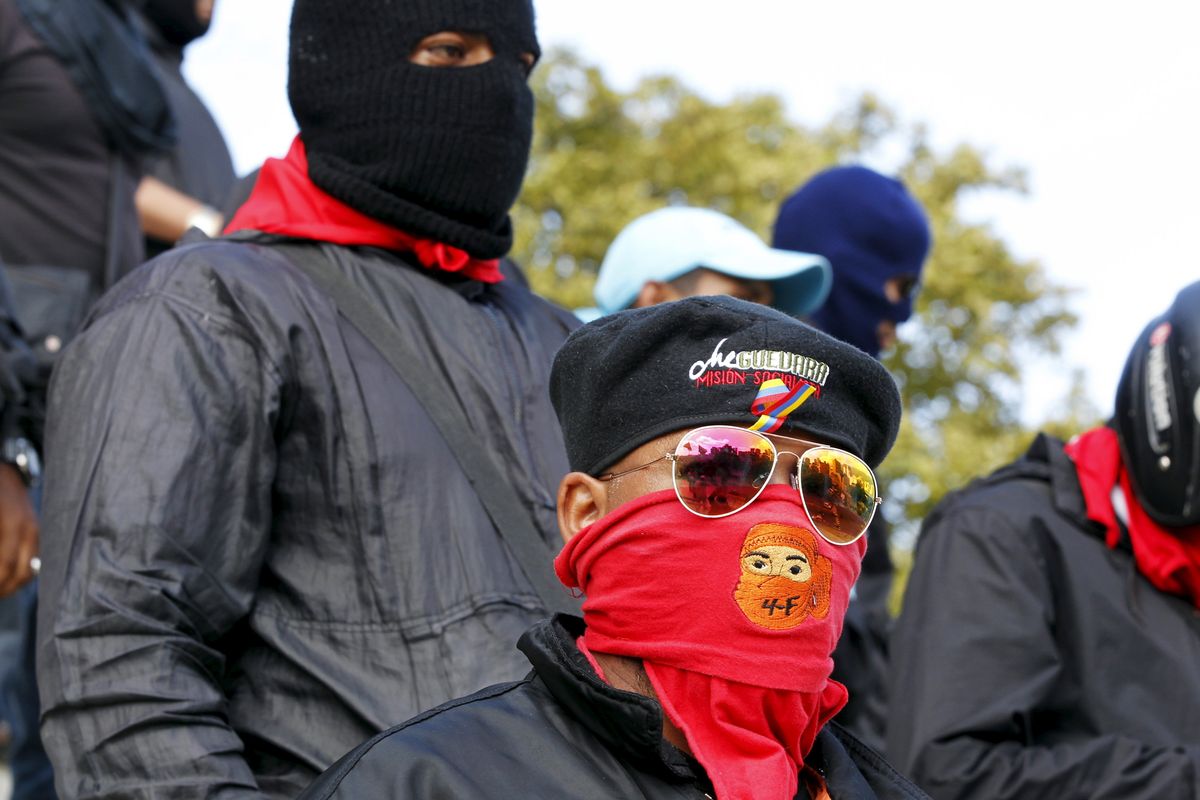The high drama of Venezuela's political crisis continues to center on the rival claims to power of National Assembly President Juan Guaido and President Nicolas Maduro.
But while resolving the current standoff over who controls the national government is critical, finding any prosperous and stable path forward for Venezuela will also require taming the myriad irregular, criminal, and non-state groups that control local territory and illicit industries across the country.
There are many such groups operating in Venezuela today – often with overlapping allegiances and activities. Broadly speaking, they fall into three groups:
First, there are those directly co-opted by the state. Well-armed neighborhood criminal gangs called colectivossuppress anti-regime dissent in the capital, Caracas. These groups work with other quasi-official repression squads that the government has created as an insurance policy against the fickle loyalties of rank and file soldiers and police officers.
Second there are regional criminal syndicates who control vast illegal mining and drug trafficking industries, particularly in the East, operating in cahoots with local or national officials, as well as with transnational crime networks.
Third, there are outside militants: the most formidable of which are Colombian rebels from the ELN – that country's largest remaining narcotrafficking insurgent group – which the Chavista regime has long sheltered and supported. Last month, the ELN claimed responsibility for the bombing of a police academy in the Colombian capital that killed 21 cadets -- the bomber belonged to a unit reportedly commanded from within Venezuela.
Even if a resolution of the standoff between Messrs. Guaido and Maduro is possible, all of these groups will be angling to expand their positions and exploit the local power vacuums created by a shifting national political dynamic. As a result, any new government, and the military loyal to it, will quickly have to contend with these groups' capacity to wreak havoc.
The worst outcome would be a badly patchworked Venezuela in which the writ of central authority (or competing authorities) is fragmented throughout the country, opening the way to further violence and instability.
The bottom line: As the high drama in Caracas unfolds, keep an eye on these irregular, non-state players whose prerogatives, power, and loyalties will be critical in shaping Venezuela's future.






